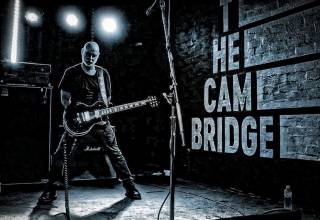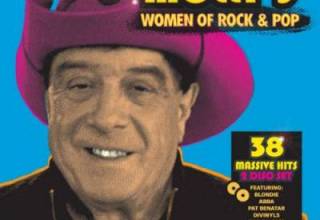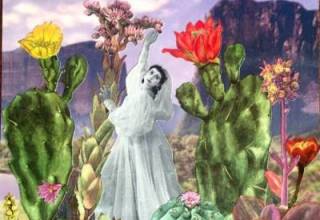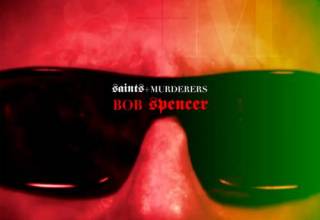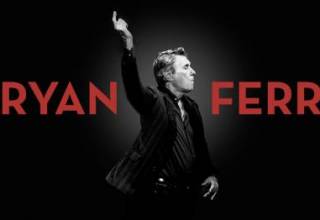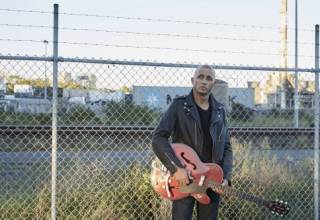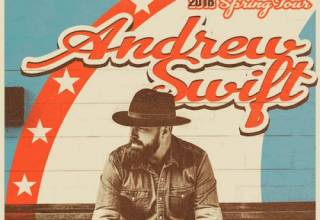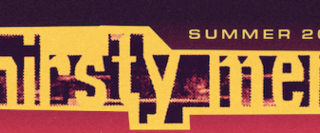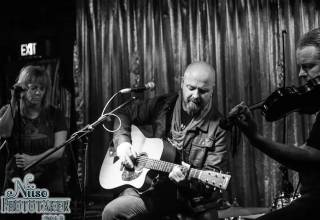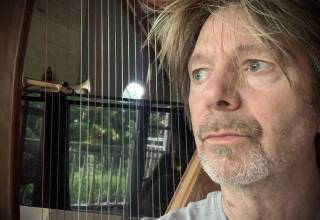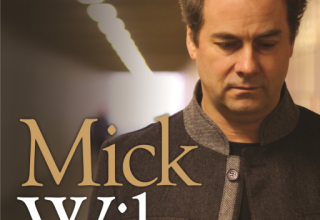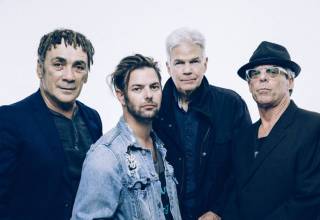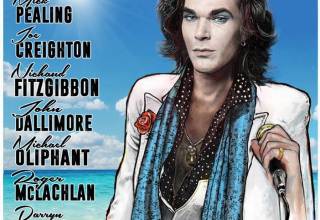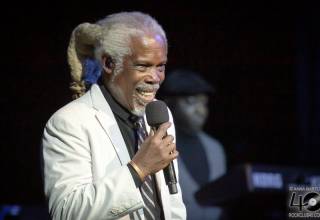
Photo: Copyright © Sharyn Hamey
It seems a bit of a stretch from the glam pop of the 70’s to the earthy tones of Australian country music but that is the road that former Sherbet keyboard player, Garth Porter, has travelled. The producer/songwriter has come a long way since those heady days of the 70’s when Sherbet was the flavour of the decade in this country. One thing hasn’t changed, however: his passion for music and the drive that constantly pushes him to create.
When I met with Garth recently at his recording studio in Sydney’s southern suburbs, we talked about that driving force of creativity, the changing path it has led him along and where it all began. “After Sherbet, gone was Sherbet as the vehicle, gone was the live touring but the things that I used to do, the song writing and the studio side of things, that’s what I continued on with,” he tells me, “And it’s been really good to me.”
Indeed, it has been good, very good, in fact. Since entering the once alien world of country music, Garth has been the recipient of no less than fourteen awards from the Country Music Association of Australia, including Producer of the Year, which he won for six consecutive years. It would be an understatement to say that Garth Porter has earned himself a reputation for excellence within the industry.
“Mind you, I’ve worked hard at it,” he points out. “It’s kind of a ‘twenty four/seven’ thing. And it does require that. Sadly, it does. It would be nice to think that I can start my day and do an eight hour day and then go home and watch TV. I never watch TV! Never! There is never a night at home that I am not working. That’s seven days a week, all through Saturday and Sunday, other than when I’m doing domestic chores.” Apparently, he likes to spend some of that rare free time in the kitchen. “I’m a bit of a dangerous cook. I enjoy cooking, especially Asian food. And I enjoy doing maintenance around the house, you know, getting up and painting things, fixing things, building things. There’s just always something where I’m being active. I spend very, very little time sitting on my bum, being entertained by the television set.” He does allow himself at least one indulgence, however. “Rugby’s my weakness. I love Rugby. Well, I’m a New Zealander and I still love the All Blacks. When the All Blacks and The Wallabies are on their European tour, I always watch both their games. That’s time out, you could say, four hours a week. Except when the Super 14’s are on, then I’ll watch as many games as I can. That’s my only recreation away from music.” But he is not complaining. “I think it would be horrid to wake up one day and just not be able to write.” He cringes at the thought.
After a very successful career with Sherbet, the producer/songwriter feels very blessed to have a second shot at success with his latest career path. “There are a lot of people who get to my kind of stage and have had a very active career,” he explains. “Suddenly, the door’s closed and, unless their career has had the substance, like Daryl (Braithwaite), where he can go around and do a lot of live tours, if it’s somewhere below that, then suddenly everything turns off. Opportunities disappear. And I don’t know what you do to re energise that. It must be very hard for a lot of artists,” he muses. “I’ve been lucky because I’ve had career A with, obviously, Sherbet and Career B – song writing and producing. I spend more of my life now in Career B than Career A but my Career B was always a process part of my career. With Sherbet, the process was always song writing. I was the member of the band who was most responsible for producing and getting the band’s recordings together. Even though we had delegated producers, it was still, essentially, my responsibility that the songs were organised, that we had maintained the integrity of the songs and so on. It just turned out that way. I guess I had the desire to want to do that.”
Garth admits that his transition from pop to country was never planned. “It was a complete accident.” he tells me. “I was signed, at that time, to a publisher called Rondor Music who, many years ago, was bought out by Universal and there was a writer’s meeting. They had all of their signed writers go up for afternoon tea and have a bit of a chit chat and I got chatting to a guy called Rhys Kirk who had one of his songs covered by an American singer called Crystal Gayle. The song was ‘Our Love Is on the Fault Line’. Anyway, we sort of had things in common and he was writing country music and I hadn’t really thought about it at that time. So we got together on fairly regular occasions and started writing songs together and, invariably, they turned out to be country songs.”
Of course, the pair needed a singer to sing their songs and they were very impressed with Lee Kernaghan who, at the time, was working in real estate in Albury. Garth recalls trying to convince Lee to do a demo with him. “I said ‘Maybe some time we can do a record together’ and, at that time, he said ‘Oh look, I’m just about to sit for my Real Estate Diploma. Maybe, one day. And I said, ‘Well look, if I ever have some quiet time, I’ll let you know and we’ll see what we can do.’ And about six months to a year later, I said ‘Hey Lee, we’ve got a bit of space. Do you want to get together and write some songs?’”
“That was the first time I thought about the important things about what being an Australian means to me,” he reflects. “and I discovered the wonderful poetry of Henry Lawson, in particular, and I just melted. I realised that this was the core of what the lyrical content should be. But I thought, at that time, country music was very…” he searches for a moment to find the right word “the recording process was very traditional. Because I’d come through the contemporary music scene, I thought ‘we can really inject some energy, some attitude, some modern recording values into this.’”
As Garth sees it, the perfect example of that was Lee Kernaghan’s first album. “It sounds pretty tame by contemporary country standards but, at the time, there was criticism from the country music media that Lee had sold out and gone ‘American’. He hadn’t. It’s just that music had modernised. The lyrics were all still very much the foundation. Most of the songs were about the Australian culture. You can read the lyrics and see that there are obvious identifying things about it that you would know that these songs are about Australia and that’s always been a component for Lee. Actually, prior to that time, Lee was singing with an American accent.” Garth was adamant that, to sing about Australia, you had to soundAustralian. “I told him ‘Lee, you can’t sing about Australia with an American accent. It’s wrong!’ But, he battled with it because he modelled his vocal style on Americans.” Eventually, though, Lee found his true Australian accent and Garth smiles as he recalls what was clearly a turning point for the singer. “At the end of the take, he said ‘Mate, I can’t believe it. Suddenly the power of the song has authenticity now that I’m singing it like that.’ Yeah, I still remember that moment.”
Garth describes his writing style as “The Australian Story…. I try to get it as honest and as authentic as I can. I do spend a lot of time writing ahead of these albums. I think his (Lee Kernaghan’s) current album, ‘Planet Country’, is his best ever. Best songs, best vocals, best recording quality. It’s a special album. Time will tell but it feels very special.”
He explains a bit about the song writing process. “Usually, with Lee, he will put a title idea on the table and we’ll throw it around. He might even have a bit of a melody. That’s usually the case with Lee. Lee’s not a strong lyric writer. In fact, he doesn’t write any of his words but he’s very, very particular about the lyrics he sings. There’s always a lot of late night bottles of red wine at home, by myself. That’s usually when I write the lyrics. I’m not much good with lyric writing when I’m in a room there with people at the moment. I get the idea and then take it home and write the lyric – totally alone.”
Of course, Lee Kernaghan is not the only artist that Porter has worked with. The list is impressive and includes such great country singers as Gina Jeffries, Sara Storer and Troy Cassar-Daley. He prefers working with artists that sing Australian stories. “I find it a bit hard to get into the more global, lyrical theme.” he admits.
Another artist that Garth has worked with is British pop singer, Leo Sayer, who now resides in Australia. Garth produced Leo’s latest studio album, ‘Don’t Wait Until Tomorrow’, a cross section of the singer’s tunes, recreated and given new life. The album was a bold step for Sayer. Garth shakes his head as he talks about the experience. “Sadly, that was such a disappointment,” he concedes. “The album itself was an absolute joy. It just felt so good and people would hear it and the reaction was just sensational. He had his first record deal that he’d had in about ten years. They totally believed in it. For some reason, it went out there and …” he shrugs. “It had a lovely sound and feel about it and he sang great. Really talented guy. However, these things happen. You can make a record that you feel really confident about, then just… nothing. I don’t know why it failed. I don’t know.”
Garth is the first to admit that it is not always easy to predict what will work and what won’t. “Usually, my instincts are fairly good though. I think ‘this is a good record’. I never put out a record that’s anything less than I think is very good. I thought that this was special. Leo was such a vibrant, energetic, enthusiastic person. It was just a real pleasure to mix. However, it was just one of those disappointments.”
Always on the lookout for new talent and keen to nurture aspiring songwriters, Garth was, up until recently, lecturing at the Australian College of Country Music. “I did that for about twelve years. And then they started rotating it and the particular part that I did, which was doing recording sessions at the college, they decided to dispense with that. Last year, I did a couple of lectures on song writing. It’s very hard to lecture on that. How are you going to do it?” he shrugs. “And the things that inspire me might not be relevant to other people. It’s not easy so I don’t think I’m doing the college this year which is actually a good thing. I’ve got so much stuff on my plate.”
That ‘stuff’ includes a project with local pop band, ‘The Chronics’. “We did something about six months ago which was received very well internationally and we’re doing some more on that project.” He is also working on a project with a country singer named Markus Meier. “I’ve already done an album with him and he’s starting to make serious inroads now. We started in January with the song writing. We’ve probably got enough songs now to do a really good album but we’re keen to get a few more. So we’ll start recording in February. It’s about a four week process recording the album and then it’s about two months before the delivery before it comes out. I think it will be out about May. It’s a fairly slow process. The preparation is the thing that takes the longest. For Lee’s last album, we started writing songs for that about two and a half years ago and it just came out a few weeks ago. And many, many long weeks of song writing. It’s always a process of continual review. It’s very rare you actually sit down, write a song and that’s it.”
Garth added yet another string to his bow when his music was used in the Gold Coast tourist attraction, ‘Australian Outback Spectacular’. “Essentially, they wanted Lee’s song in there but then they wanted some pieces that were already in Lee’s catalogue so Lee and I had a meeting … it all sort of comes under the banner of Lee Kernaghan / Garth Porter,” he explains, before telling me a little about the show itself. “It’s quite incredible. The effects are amazing. They have the big rainstorm, literally. A helicopter comes out, over the audience, and it whirrs around (he imitates the sound effects to give me the idea) and there’s a lot of horse action. It’s done very well.”
And, of course, the music’s good. “Oh yes,” he laughs, “the music’s good.”
With so much happening in his career these days, Garth agrees that he has been very lucky to have had such a steady stream of work since his days with Sherbet. “But, having said that, you find the harder you work, the luckier you get. No amount of hard work can guarantee that you are going to be lucky in the end but I think you’ve really just got to keep at it and keep at it and keep at it. And I’m such an obsessive person… totally obsessed by all aspects of music, song writing, recording, the studio, recording technology. It’s fascinating… every aspect of it.” His face lights up with enthusiasm as he tells me of his passion for every part of his chosen career. “I suppose, over the years, you kind of take for granted how much you know about so many fine details of different types of the musical process: playing, writing, recording, technology, all of that.”
But, as he points out, there is always more to learn. “It’s that old chestnut. The more you know, the more you can learn. But it still comes down to the human element really. And team work. Having a really good team. Lee’s just a remarkable artist. So, it’s not just a point of me writing a good song. How good is the vocal? How good is the sound? Once it’s finished, how good is the management at the label? The team work starts with the artist at the top of the pyramid, obviously. Placed underneath is the producer, engineer, manager. They’re doing their job. Underneath that is the record company, publishers, all the aspects of both of those organisations; their efficiency, their promotional teams, their commitment to it and so on and then, finally, down to the retailers standing behind the counter at the record store. It’s a huge pyramid and every part of it has to be working properly for it to work. It can’t happen by accident. Something only ever happens because somebody makes it happen.”
In spite of all the accolades bestowed upon him by the industry, Garth is quick to acknowledge that, ultimately, it is the artist who is in control. “I can’t do what I do without the artist. They’re always placed above us. They have the final say.”
by Sharyn Hamey
Copyright © Sharyn Hamey 2009. All rights reserved











